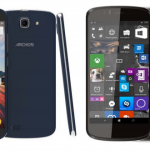Don't blame Samsung; it's your own stupid fault if you break your Galaxy Note 5

Samsung is undoubtedly pleased that its new Galaxy Note 5 is in the headline, but the company would almost certainly prefer that it was for different reasons than it breaking. Not that there is a problem with the Note 5 -- despite countless websites and blogs claiming that Samsung has released a handset with a design flaw -- but if you insert the S Pen the wrong way round, you could well break it.
Of course, when one makes a mistake -- like shoving a stylus backwards into its housing -- it's easy to try to blame someone else. Samsung's response to the situation has been advising people to "follow the instructions in the user guide", which is entirely reasonable. How much hand-holding is really required? Do knife manufacturers need to tell you not to hold onto the pointy end?
Security education saves companies millions of dollars a year

Successful phishing attacks can lead to costs from loss of employee productivity and credential compromise, among other factors, which together may cost an average sized company $3.77 million per year.
New research released by Wombat Security Technologies and the Ponemon Institute finds that the phishing email click rate improved an average of 64 percent following security training.
Windows 10 now on 75 million devices according to Microsoft

It's been a wild month for Microsoft, given the roll out of the operating system many had been waiting for. For those who were perturbed with Windows 8 and those who skipped it all together, Windows 10 is a definite step up. It's a bit of a hybrid and it came out quickly -- much faster than past versions.
Now after much rather useless speculation, we have numbers that are actually attributed to Microsoft. The information comes via Yusuf Mehdi, Corporate Vice President of Marketing for Windows and Devices, who shared the facts on his Twitter account.
One percent of employees account for 75 percent of cloud risk

Cloud security specialist CloudLock has released a new report looking at the risks of user behavior to businesses using cloud systems.
It reaches the startling conclusion that just one percent of users account for 75 percent of the security risk. The top one percent of users are responsible for 57 percent of file ownership, 81 percent of files shared, 73 percent of excessively exposed files and 62 percent of app installations.
Most developers don't build mobile apps

Even though the world is increasingly mobile, more than half of developers have never built a mobile app, a new survey, called Telerik State of Mobile Development, shows.
Telerik, the company who conducted the survey, asked 3,000 IT professionals about mobile development. Among the biggest issues developers have with building mobile apps is the fact that a lot of them are still new to mobile development or have never built a mobile app (57 percent), while others develop just one functional mobile app a year (47 percent).
The impact of big data on IT operations analytics

Decision makers at Fortune 1000 companies are increasingly seeking to make use of big data to help their IT strategy.
Analytics specialist ExtraHop has released the results of a survey conducted by research firm TechValidate which shows how organizations are evolving their IT Operations Analytics (ITOA) practices.
First Windows 10 Mobile device from Archos targets entry-level shoppers, disillusioned Android users

Windows 10 Mobile is not even ready for prime time, as Microsoft is still working on it, but some vendors have already announced smartphones that will debut with the upcoming operating system on board. The latest is 50 Cesium, an entry-level device from French electronics company Archos, which is also its first Windows 10 Mobile device.
50 Cesium is the Windows 10 Mobile counterpart to the newly-announced 50e Helium (shown on the left), which is "almost identical" in terms of hardware design. The only noteworthy difference is that the latter runs Android 5.1 Lollipop out-of-the-box. According to the company, this was done in order to "allow the customer to focus on what they like on the inside: the user interface". This is not a new idea, having previously seen HTC, for instance, announce a variant of its Android flagship from last year, One (M8), running Windows Phone instead of Android.
Some people are fine with using a phone in church, but not walking down the street

The thing with a mobile phone is, thanks to the fact it is mobile, it can be used -- just about - anywhere. But just because something is possible, it doesn’t mean that it should be done. PewResearch conducted a survey into phone etiquette, and the findings show that people are somewhat divided about where and when it is OK to use a phone.
Some of the results are not exactly surprising. A huge majority of those questioned were not cool with the idea of using a phone in a movie theater or during a meeting (95 and 94 percent respectively). But there are also some interesting quirks in attitudes to mobiles -- 4 percent of people, for instance, see no problem with using a cellphone in the middle of a church service.
AT&T accused of injecting ads through its free Wi-Fi hotspots

What price is free? In the case of Windows 10, many argue that it means giving up a little of your privacy, and it seems that AT&T's free Wi-Fi hotspots also come with a hidden payload. Whilst visiting Dulles Airport, computer scientist Jonathan Mayer noticed that "the web had sprouted ads. Lots of them, in places they didn’t belong".
With time to kill waiting for a flight, Mayer set about investigating where these extra ads were coming from. It didn’t take long for him to discover that the AT&T hotspot he was connected to was the problem. He found that the hotspot was injecting a stylesheet which in turn pulled in advertising. But it didn’t end there...
24 years of Linux: From 'just a hobby' to hugely successful

Twenty-four years ago, Linus Torvalds wrote a post on Usenet announcing he was "doing a (free) operating system". He was asking for feedback and suggestions for features, making it clear that the project was "just a hobby".
Jump to 2015 and Linux is driving real innovation in some of the world’s largest and most successful enterprises, including Google, Amazon and Facebook. It is one of only two operating systems (OS) still growing and, with Windows set to grow by just 1.9 percent, Linux is in a league of its own at 13.4 percent compound annual growth rate (CAGR).
Millennials lose trust in the digital economy

Although millennials are the first fully connected generation, having lived their whole lives in the Internet era, new research suggests that they're beginning to recognize that their identity and personal data may not be properly protected.
Digital identity specialist Intercede surveyed around 2,000 16-35 year-olds in the US and UK to get their views on current security measures. The results suggest what the company calls a 'millennial malaise' towards existing safeguards, in particular the use of easily-hackable but widely used password-based authentication methods.
TuneIn Radio rolls out a Premium version of service

In the world of streaming entertainment, TuneIn Radio is a bit unique. It isn't just music, you get the news, sports and even podcasts. The Amazon Echo even utilizes it to play content, as well. So what more can you want from the service? Well, how about a Premium option.
This ups the offering, bringing all sorts of new content, including sports and commercial-free music. Enjoy Major League Baseball games, as well as Barclays Premier League and Bundesliga matches.
Samsung is giving away paid apps and magazine subscriptions with Note 5 and S6 Edge+

The retail price of the Galaxy Note 5 starts at around $740 (off-contract) and $250 (2-year contract). Similarly, the Samsung Galaxy Edge+ will set you back by at least $820 (sans contract) and $300 (2-year contract). If that seems like a lot of money to you for the said devices, Samsung is offering an interesting set of goodies -- called Galaxy Gifts -- to offset the otherwise a bit pricey label.
The company is giving away a package of premium apps and subscriptions consisting of paid games including Hearthstone: Heroes of Warcraft, Driver Speedboat Paradise, PES Club Manager, and Empire: Four Kingdoms. You also get paid apps like Art Rage, Komoot, and Sketch Book for no extra charge. Worth pointing out that some of these are already free via the Play Store, and the company is taking care of in-app purchases, in such cases.
YouTube Gaming is ready to give Twitch some competition

Anything computer-related can be made social and shareable, and gaming is no different. Amazon's game live streaming service Twitch has proved immensely popular and now Google is ready to put up some competition with YouTube Gaming.
Starting tomorrow (26 August), head over to YouTube Gaming and you can start a stream of your own or watch other gamers play. Of course there will also be an app, and Google is aiming to create "the biggest community of gamers on the web".
This app lets you see the invisible Wi-Fi signals all around you

People worry about everything these days, and new technology is often a big cause for concern. Wireless charging, which is starting to appear in appliances, cars, and furniture, has some people fretting that it will microwave their internal organs while they sleep, and it wasn’t that long ago that people were stressing over the possible side effects of Wi-Fi too.
A BBC investigation a few years back found that RF radiation levels in some Wi-Fi-enabled schools were up to three times higher than the levels emitted by a typical mobile phone mast, leading to suggestions that Wi-Fi should be banned in places of education in the UK until its possible dangers had been fully investigated. Of course Wi-Fi hasn’t been banned in schools, or anywhere else for that matter, and it’s become far more ubiquitous. A new iPad app by Dutch designer Richard Vijgen uses augmented reality to visualize the network of radio waves that surround us, and it provides a truly fascinating glimpse into the invisible world that we now rely so much on.
© 1998-2024 BetaNews, Inc. All Rights Reserved. Privacy Policy - Cookie Policy.




